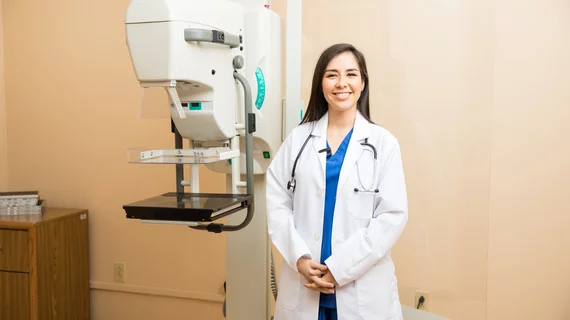The United States Preventative Services Task Force has opened a public comment period for its new breast cancer screening research plan, and radiology’s input on the topic is “critical,” the American College of Radiology said Thursday.
Last week, the USPSTF published its draft document and said it would be open to feedback through Feb. 17. The document outlines its planned research approach, including study features and criteria, that will be used to determine new breast screening recommendations.
The American College of Radiology, meanwhile, called on radiology as a specialty to offer up guidance. ACR noted that its Breast Imaging Government Relations Committee, Breast Imaging Commission, and Screening Leaders group will be reviewing the draft to inform its own comments.
“Radiology’s input on the draft research plan is critical because the plan sets the foundation for what will be considered during USPSTF’s review of the topic,” the college said in a statement.
The task force last issued breast cancer screening recommendations in 2016, maintaining its controversial 2009 view that women in their 50s should receive mammograms every two years. A number of healthcare groups, including the ACR, have lobbied against such recommendations, instead advocating for USPSTF’s 2002 guidance to screen every one to two years beginning at age 40.
“Since 2009, USPSTF’s recommendations on breast cancer screening have diverged from those of leading breast cancer experts,” the ACR noted.
In the document published last Thursday, the task force indicated it would again rely on evidence from randomized controlled trials, as it did for its 2016 statement.
Unlike its guidance issued five years ago, however, forthcoming recommendations will address how structural racism, social inequalities and unequal healthcare access impact breast cancer screening and treatment.

